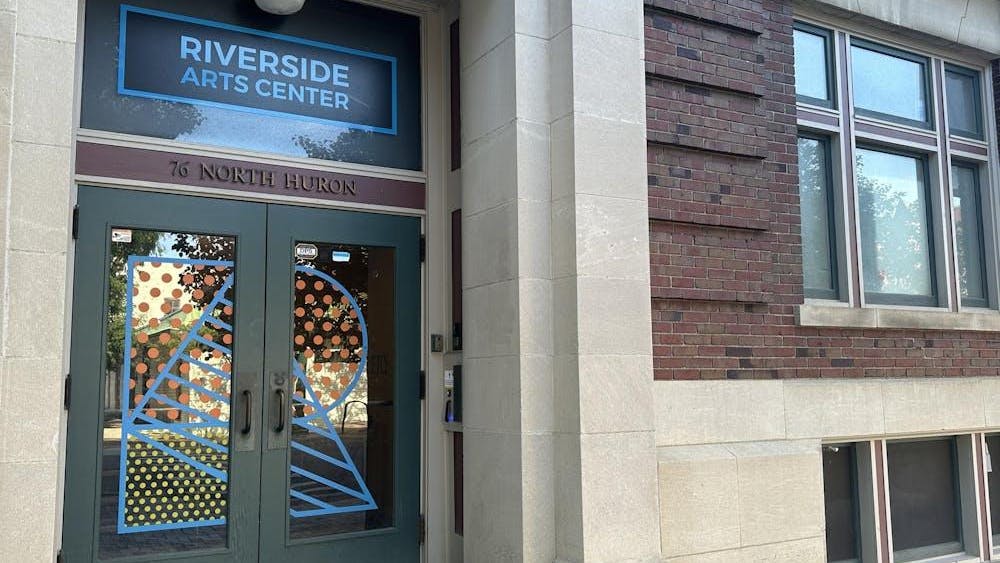There are 10 million women and 1 million men struggling with eating disorders, including but not limited to Anorexia Nervosa and Bulimia Nervosa, according to the National Eating Disorder Association.
While some people sit back and make jokes about eating disorders, or think an eating disorder isn’t a real illness, a lot of people aren’t aware that Anorexia has the highest mortality rate of any other psychiatric illness, including suicide.
According to Dr. Alexander Sackeyfio, an eating disorder specialist at Beaumont Hospital in Royal Oak Mich., Bulimia is potentially more dangerous than Anorexia because bulimics can hide their disease.
Bulimia is when a person binges on large amounts of food such as, a whole cake or a gallon of ice cream. Bulimics go to the extreme, and then they do what they can to get rid of the calories they consume by purging — meaning vomiting, laxatives, diuretics or even extreme exercise.
Another reason bulimia is so dangerous, according to Sackeyfio, is because when a bulimic is vomiting, it is not hard to go into cardiac arrest or to pop a blood vessel, which can cause a stroke, and can also cause kidney damage, acid reflux disease, electrolyte imbalances and death.
Anorexia is defined as self-starvation. A person with this condition often thinks they are fat while in reality he or she is severely underweight. Anorexia can also cause cardiac arrest, osteoporosis, kidney damage and many more health complications including death.
EDNOS is the classification of people struggling with an eating disorder, but does not necessarily fit all of the criteria for Anorexia or Bulimia. If a person is purging and not binging as opposed to the bulimic who binges and purges.
According to studies done by Rader Programs that are known for their two eating disorder treatment centers, 86 percent of people surveyed who have eating disorders say they started before the age of 20.
They also say, “The occurrence of eating disorders among college-age women can almost be considered epidemic. Between 19 percent and 30 percent of this age group display bulimic behavior.”
Students who go to Eastern Michigan University and struggle with eating disorders don’t get much support from the university. Psychologist Lisa Lauterbach who is the director of Counseling and Psychological Services said there are less than half of the recommended number of counselors on staff at CAPS.
There should be one counselor for every 1,000 to 1,500 students, EMU has more than 23,000 students and there are only six licensed counselors on staff.
The deficit of staff and money forces CAPS to focus on anxiety and depression for 12 private sessions per year. Lauterbach said CAPS will speak to specific groups on campus about eating disorders and body image issues if asked. In the past they have spoken to sororities, but there hasn’t been a high outcry from students to focus on eating disorders.
Eating Disorders are exacerbated by stress, and sometimes deadlines can spiral an eating disorder from manageable to out of control.
Daniel Karper, second year graduate student here at EMU is studying psychology. His focus is clinical psychology, and he is now researching co-morbid anxiety and depression, which is when someone struggles with both depression and anxiety at the same time, non-suicidal
self-injury and Antisocial Personality Disorder.
Karper said, “Eating disorders are a big problem, but one of many such as Major Depressive Disorder and various forms of anxiety; but, on college campuses, eating disorders are the ones I hear about the most, that’s for sure.”
Going through eating disorder treatment is not easy, and anyone who tells you it is just about picking up a fork and eating has no idea what he or she is talking about. A lot of it is related to chemicals and genetics just like depression and anxiety, and because it is both physical and psychological it is extremely hard to treat.
Sometimes they can admit they have an issue, and then the next minute, hour, or day they won’t be able to. Just because someone isn’t actively seeking help, or admitting they have an eating disorder, doesn’t mean they wouldn’t jump at the chance to join a support group or get help if it were offered to them. Eating disorders are addiction, and the only difference is that we need food to survive, and that is why it is so important to get help.









